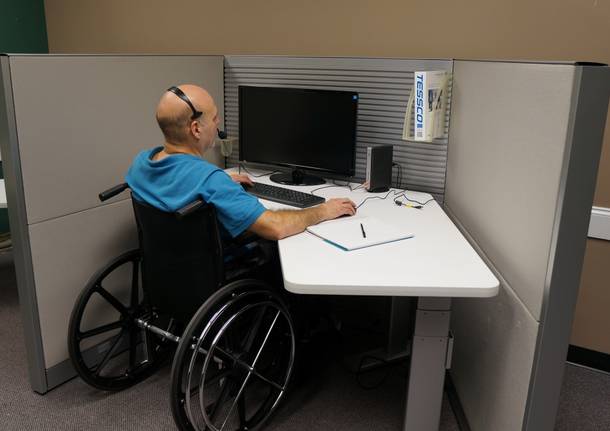Disable workers increase by 67% among the cooperatives in the Italian region of Lombardy
The increase of 67% of the disabled employees who work in the cooperatives has been at the centre of the first regional press conference of the cooperatives in Lombardy

In Lombardy, the cooperative system continues and the employment of people who suffer from disabilities keeps on growing. The data of Unioncamere (an Italian institution that helps the Chamber of Commerce, Agriculture, Industries and Craftsmanship), reworked by Polis Lombardy (an institution of the region Lombardy that supports its policies) show in fact the drop in the cooperatives who have no disabled employees and an increase of 67% of the employees with disabilities. What contributes more to this result are the needs of big companies, who often resort to cooperatives in order to respect the legal obligations.
In fact, with the emanation of the legislative decree Job’s act, from the 1st January 2018 it became obligatory to hire a certain number of people who suffer from disabilities for companies who have more than 14 employees. In particular, the companies with between 15 and 35 employees must have at least one disabled employee, those with between 36 and 50 employees must have two disabled employees, whereas the companies who have more than 50 employees must have a number of disabled employees equal to the 7% of the available places. Out of 18,600 cooperative companies registered in Lombardy (who form the 13% of the total in Italy), the highest number is in Monza e Brianza and in Bergamo. As for the industry, storage and transport (18%) are the most involved.
“The cooperative,” said Alessandro Mattinzoli, councilor for the development of the economy of the region, during the first regional press conference of the cooperative in Lombardy, “is a model that is still current but to win the challenge of innovation, it has to understand its weaknesses, without losing its DNA, that is the diffusion of the wellness in the whole social fabric”. “The role of the cooperatives,” added Fabio Rolfi, councilor for the agriculture, alimentation and green system, “is also important in the food farming industry. The cooperatives produce more or less 60% of milk in Lombardy and in view of the next plan of rural development we will have a conversation with them to tackle the topics of environmental sustainability, concept of the supply chain and reduction in red tape.”
“The extended and abundant world of cooperatives,” explained Melania Rizzoli, councilor for education, formation and work, “is interesting especially for the hiring of people who are more fragile, that is a great opportunity.” “The social cooperative,” concluded Stefano Bolognini, councilor for the social policies, “represents an important economic and social phenomena, that translates into the capability of giving concrete answers to the needs that our territories manifest.”
TAG ARTICOLO
La community di VareseNews
Loro ne fanno già parte
Ultimi commenti
lenny54 su A Varese Salvini prova a ricucire passato e futuro della Lega, ma Bossi non c'è
PaoloFilterfree su A Varese Salvini prova a ricucire passato e futuro della Lega, ma Bossi non c'è
axelzzz85 su A Varese Salvini prova a ricucire passato e futuro della Lega, ma Bossi non c'è
elenera su A Varese Salvini prova a ricucire passato e futuro della Lega, ma Bossi non c'è
Roberto Colombo su A Varese Salvini prova a ricucire passato e futuro della Lega, ma Bossi non c'è
flyman su Quarant’anni di Lega e quelle scritte nel paese del “Capo“














Accedi o registrati per commentare questo articolo.
L'email è richiesta ma non verrà mostrata ai visitatori. Il contenuto di questo commento esprime il pensiero dell'autore e non rappresenta la linea editoriale di VareseNews.it, che rimane autonoma e indipendente. I messaggi inclusi nei commenti non sono testi giornalistici, ma post inviati dai singoli lettori che possono essere automaticamente pubblicati senza filtro preventivo. I commenti che includano uno o più link a siti esterni verranno rimossi in automatico dal sistema.